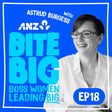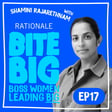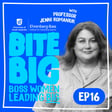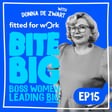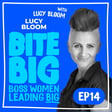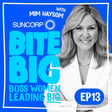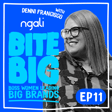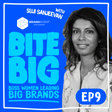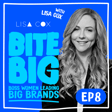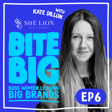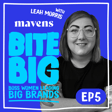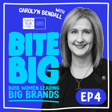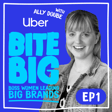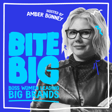
Amber Bites Big with Michelle Redfern - founder Advancing Women in Sport
For the first episode of Season 2, Amber Bonney Bites Big with guest co-host Michelle Redfern - the unofficially anointed "voice for change" advocate and CEO of Advancing Women in Sport, Podcaster, Ambassador and AFR Top 100 Most Influential Women. Quite the list!
Inspired by Amber's own Mantra, "bite big and chew like hell", in this episode we talk about Michelle's mantra 'Get Shit Done' and how this has influenced her approach to business. We find out why Michelle has been so aptly described as a 'Powerful voice for Change' and one of Amber's Top 20 most inspiring Australian women. In Amber's words "Michelle Redfern is an action-led human. No mincing of words, bravery in spades, an exception strategic leader and one of the most passionate advocates for women in business and sports I know".
Michelle discusses growing up in a patriarchal society where women are taught not to play big, not to be big and not to get shit done, and how this has actually helped fuel Michelle to be the fiery character she is today!
Being the self driven woman she is and not wanting to have any regrets, Michelle gets candid about her journey of self discovery and reflection, and how important it is to tune into your body and mind, and the importance of having a 'squad' that allows you to 'think out load' and discuss the issues, big or small, in your life.
Bite Big has donated $500 to the chosen charity Our Watch an a national leader in the primary prevention of violence against women and their children in Australia.
If you would like to know more about our host Amber Bonney her business The Edison Agency or co-host Michelle Redfern you can connect and follow these boss women via their socials links below!
Links:
Michelle's LinkedIn
Michelle's Website
Michelle's Instagram
Michelle's New Book
The Edison Agency's LinkedIn
The Edison Agency's Instagram
Amber's Instagram
Amber's LinkedIn
Our Watch
Media/Book References
"No Ceiling, No Walls' by Susan L Colantuono
Credits
Main Host: Amber Bonney
Producer: Niki Beeston
Post Production : 17th Street Audio
